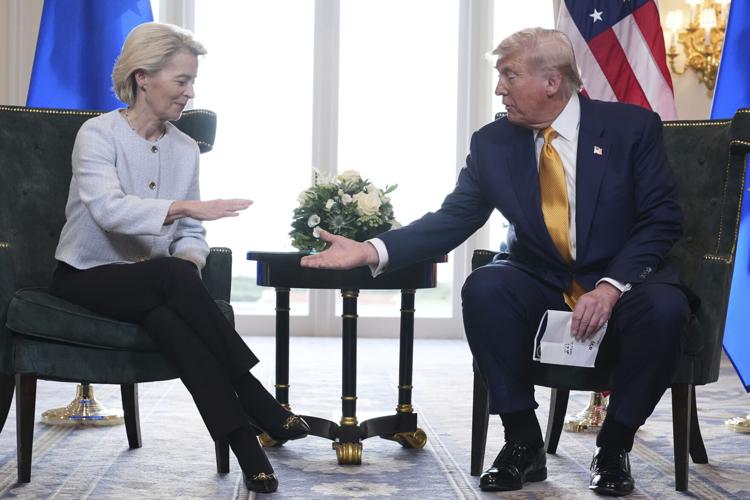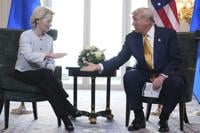BRUSSELS (AP) — The European Union is working on the assumption that the United States will impose a 15% tariff on most EU exports from Friday, even though the two sides have yet to complete a key document clarifying how the agreement will operate.
Last weekend, U.S. President Donald Trump and European Commission President Ursula von der Leyen reached a political agreement that would see 15% duties imposed on around two-thirds of EU produce, worth around 380 billion euros ($434 billion).
The tariffs are set to enter force on Friday, but as of Thursday the two sides were still working on a joint statement that would lay out the terms of their understanding, European Commission spokesman Olof Gill said. The document wouldn't be legally binding.
“It is the clear understanding of the European Union that the U.S. will implement the agreed across the board tariff ceiling of 15%,” Gill said. The commission negotiates trade terms on behalf of the the EU's 27 member countries.
Carve outs were agreed for a range of “strategic” goods like aircraft and aircraft parts, certain chemicals, some drug generics or natural resources. Gill said that “it is also our clear understanding that the U.S. will implement the exemptions to the 15% ceiling.”
“The U.S. has made these commitments. Now it’s up to the U.S. to implement them. The ball is in their court,” Gill said.
European wine and spirits won't escape the 15% levy on Friday, but may do later as negotiations on additional exemptions to the new tariff regime continue, he said.
Before Sunday's meeting, Trump had threatened the bloc with 30% tariffs, which the EU's top trade official said would effectively mean the end of trade between them. Over the last three months, the commission drew up retaliatory measures worth tens of billions of euros to enact should the talks fail.
Those countermeasures are due to take effect on Aug. 7, but Gill said that “if everything goes as expected,” they would be frozen.
“If we have reached a deal, we don’t need the retaliatory tariffs,” he said.











